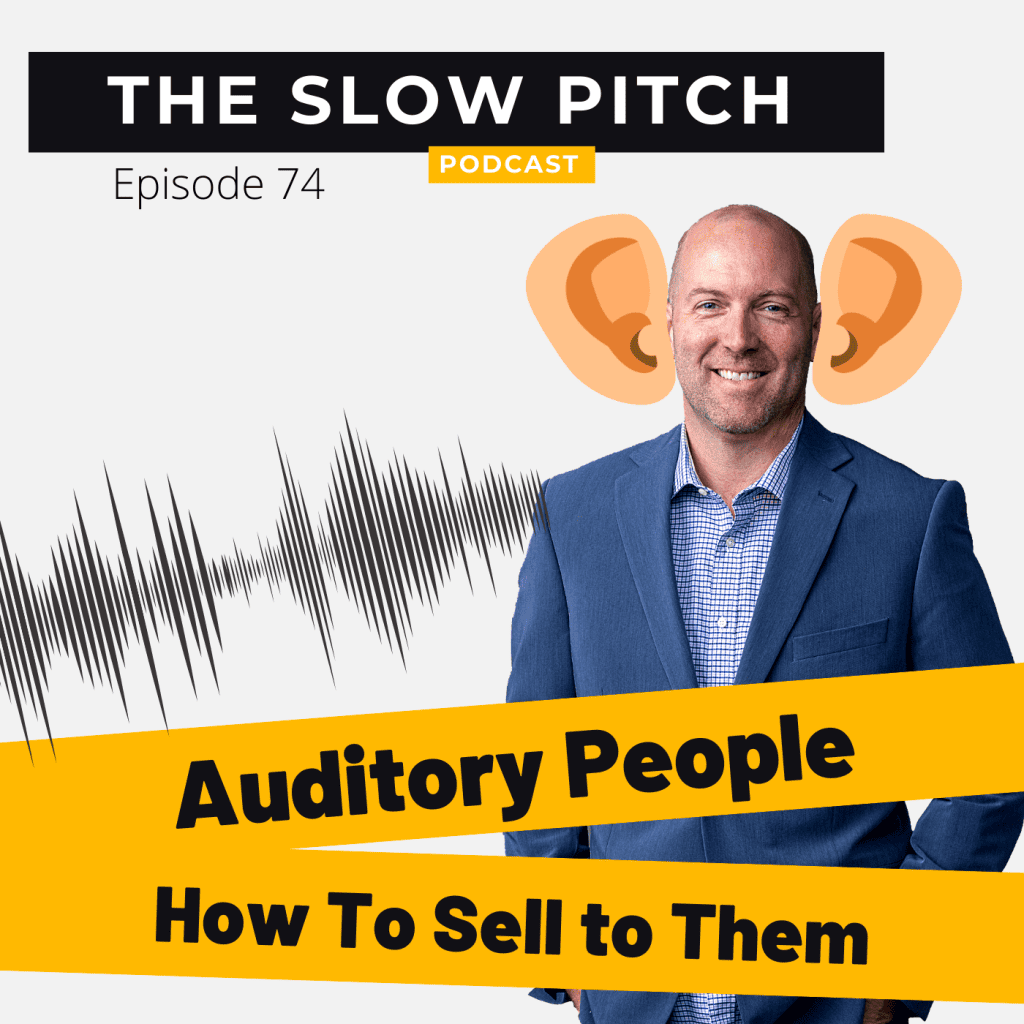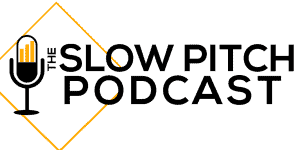Selling to Auditory Learners – #1 Sound Advice


Notes
How To Approach Auditory Learners When Selling
When you’re selling, you will encounter several personalities and types of learners. There are quite a few combinations. But this episode we talk briefly about auditory learners and how they might hear the world, your sales call, and possibly, determine if you should do business together. An auditory learner is someone who primarily focuses on sound or noises when they maneuver around the world. By this I mean, they are typically people who prefer to hear you out or listen intently on what you say.
The important point in this episode is that you must first identify what type of learner they are, and then speak to them in a language that they wish to be spoken to. Most of the population are visual learners, which means these are the type of people that see the world visually. They really hear the world for what it is. These individuals will be the type of people that will notice the refrigerator running in the background or a tick of a fan blade in a room and have a difficult time focusing on what you are showing them.
If you’re going to sell to an auditory learner you will need to incorporate questions that use words and terms that match how an auditory learner will speak. For example, they will listen for the words that you use, they will listen for your tone, and they will listen for speech pattern to determine whether or not they will trust you or not. If you are not an auditory learner, you will need to concentrate on your speech pattern and focus on the noises that your voice is making. In other words, make it pleasant for the listener, the buyer.
Hints that a buyer is an auditory learner are when they use words like:
- I hear you
- I hear what your saying
- Listen to me closely
- I’ll keep me ear out for you
- That sounds good
- What are you saying is…
- What I’m hearing is…
Those are just a couple of examples, but you should be able to get the idea and notice when you hear phrases like these to realize they might be an auditory learner and it’s time you use more of those words.
Related Episodes:
Auditory Learners – More information
NOTE: Some links may be affiliate links, which means we get paid a commission when you purchase, but it the cost remains the same for you.
Music: "Clydesdale Funk" by Cast of Characters, written by: Dustin Ransom.
The Episode
Rob 00:07
Welcome back, everybody to The Slow Pitch. Today we are going to talk about the auditory type of people. These are the type of people that typically listen to podcasts, okay? Maybe not. But these are the type of people that are more sound based, these are people that are tend to have a more auditory view, say to say that but of the world because I’m a visual, that’s how I use it. Well, let’s get started.
V/O 00:34
This is The Slow Pitch Podcast.
Rob 00:37
So an auditory person, somebody that is very focused on noise, sound, that kind of thing. They tend to be the type of people that instead of having to be shown stuff, they want to be told stuff, you’re gonna have to talk through some of these things, you’re gonna have to tell them what you’re thinking, or you’re going to have to ask them to tell you more, please tell me more. They might be this type of person, when somebody says to me, Well, tell me more.
Rob 01:03
That usually indicates not always, but usually will indicate that they’re an auditory type of person, they also can get distracted by noises. So if you’re in a sales meeting, and all of a sudden their their phone goes ding, ding, ding. And in these, they’ll just be distracted constantly, right? You might want to have a conversation before your meeting that says something along the lines of hey, can we make sure that, you know, we’re not going to be interrupted, you should be doing it anyway.
Rob 01:31
But in the sense, when you get started, you might say, hey, let’s just mute our phones, that kind of thing. If you kind of know that they’re one, you won’t know that necessarily all the time before you get into your meeting.
Rob 01:42
And your job is to figure out which one that they are when you get into the meeting after you get into the meeting, if you haven’t had much of a conversation before, but just knowing that this is one of those types of individuals, you are going to want to listen for cues, they might tell you something like, you know that sounds good, or I’m not sure I understand.
Rob 02:02
I’m not hearing what I need to hear here. I’m not, you know, would you would you talk me through some of these types of whatever it is right, there are going to use terms and words that are going to be more sound focused, auditory focused.
Rob 02:18
And so just like these visuals that we work with, you’ll want to make the same type of presentation, when you get to your estimate, you’re writing it all out, and you’re going through it with them, you’re gonna have to tell them about it, you’re gonna have to let them listen to you, you’re gonna have to let them hear something of information that is helpful. So when you speak to them, you’re going to want to be more auditory focused.
Rob 02:43
Now, I might add to this, these types of individuals are typically a little less, much less actually, than the auditory people. And so if you find that somebody’s using those words, listen for visual words as well because they may mostly driven by sound, but they also have a secondary visual that can happen frequently. Or vice versa, you have a visual, who will use auditory terms, I tend to do that sometimes, where I’ll start to say, I don’t understand, okay, I didn’t hear what you were, I didn’t hear that, or any, I don’t think I heard you correctly, that that type of so that may happen, but they’re typically or more visually driven, right?
Rob 03:29
So you’re gonna want to make sure that you test that along the way. And whenever you do your presentation or your information, make sure that there is an auditory component to that there might be music, that might mean some sort of a sound that will ring true for them that will be music to their ears, see what I’m doing here?
Rob 03:49
Those are the terms and phrases that you need to be able to ask them does this does this, what we just went through this estimate here? Is that music to your ears or no like that, that’s how you’re going to find out and use that information. So that they can hear you the way that you they need to be heard, and be able to understand you and feel connected to you.
Rob 04:11
This is all in addition to everything else that you do, the disc profiles, how they look at the world, how they hear the world, all those types of things become very important to be a difference between you and somebody who may rub them the wrong way. It can be as subtle as that. So just keep that in mind when you’re dealing with an auditory. That’s the type of things that you need to focus on. I hope that helps. And until next time, don’t forget slow down and close more.
V/O 04:40
Thank you for listening to The Slow Pitch. Do you have a question about sales? Call or text your question at (608) 708-SLOW. That’s (608) 708-7569. Or you can email them to Questions@TheSlowPitch.com, Slow Down and Close More.
Rob 05:30
Thanks as always for listening today if you’d like this podcast, please subscribe and leave us a review. We really appreciate it. Follow us on Twitter, Instagram and Facebook at The Slow Pitch. We were mixed today as always by Johnny Polakis and we were produced by High Gravity Studios. Music credits and other notes are in the show notes section on TheSlowPitch.com. We’ll be back with another episode soon.








